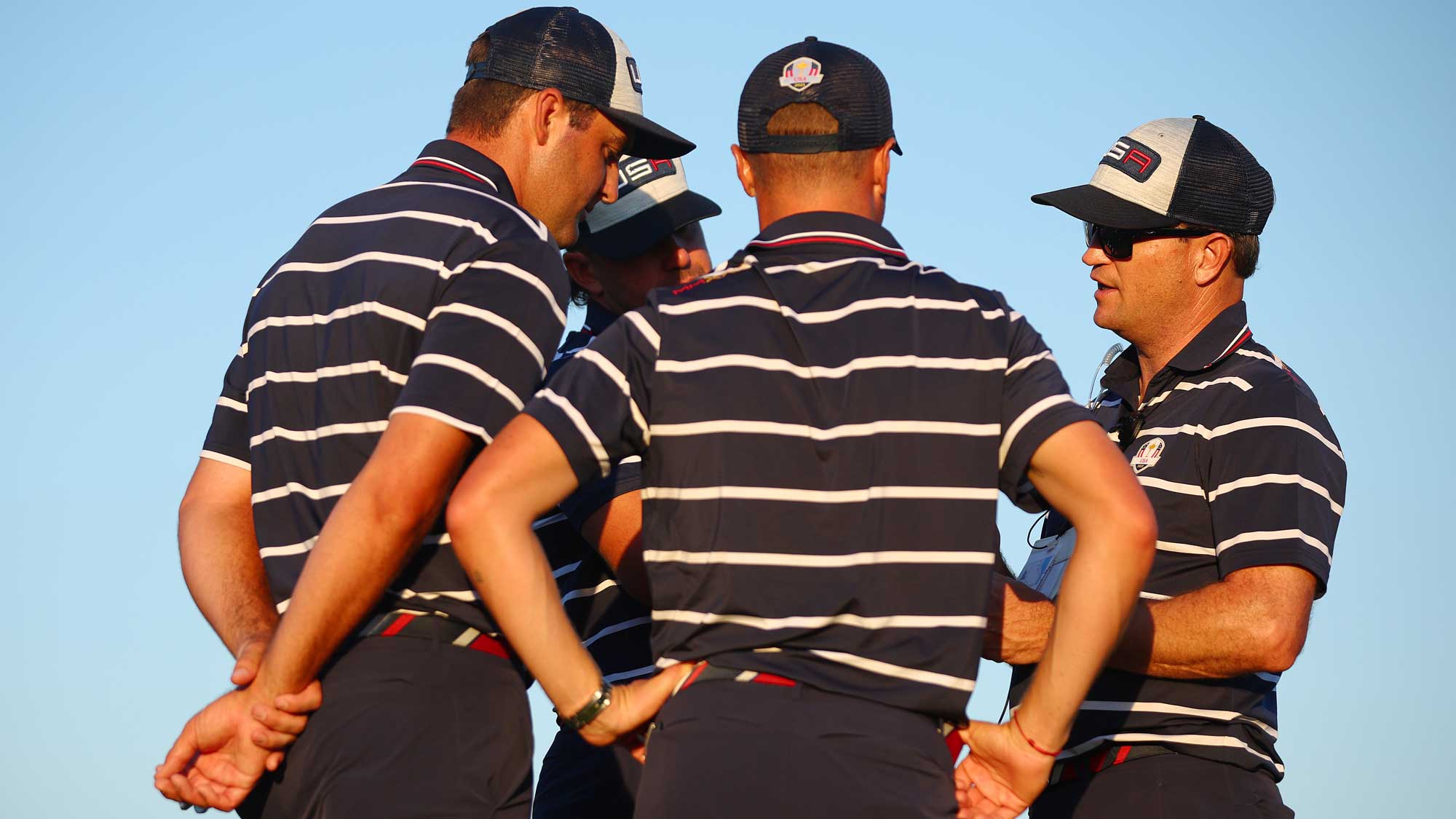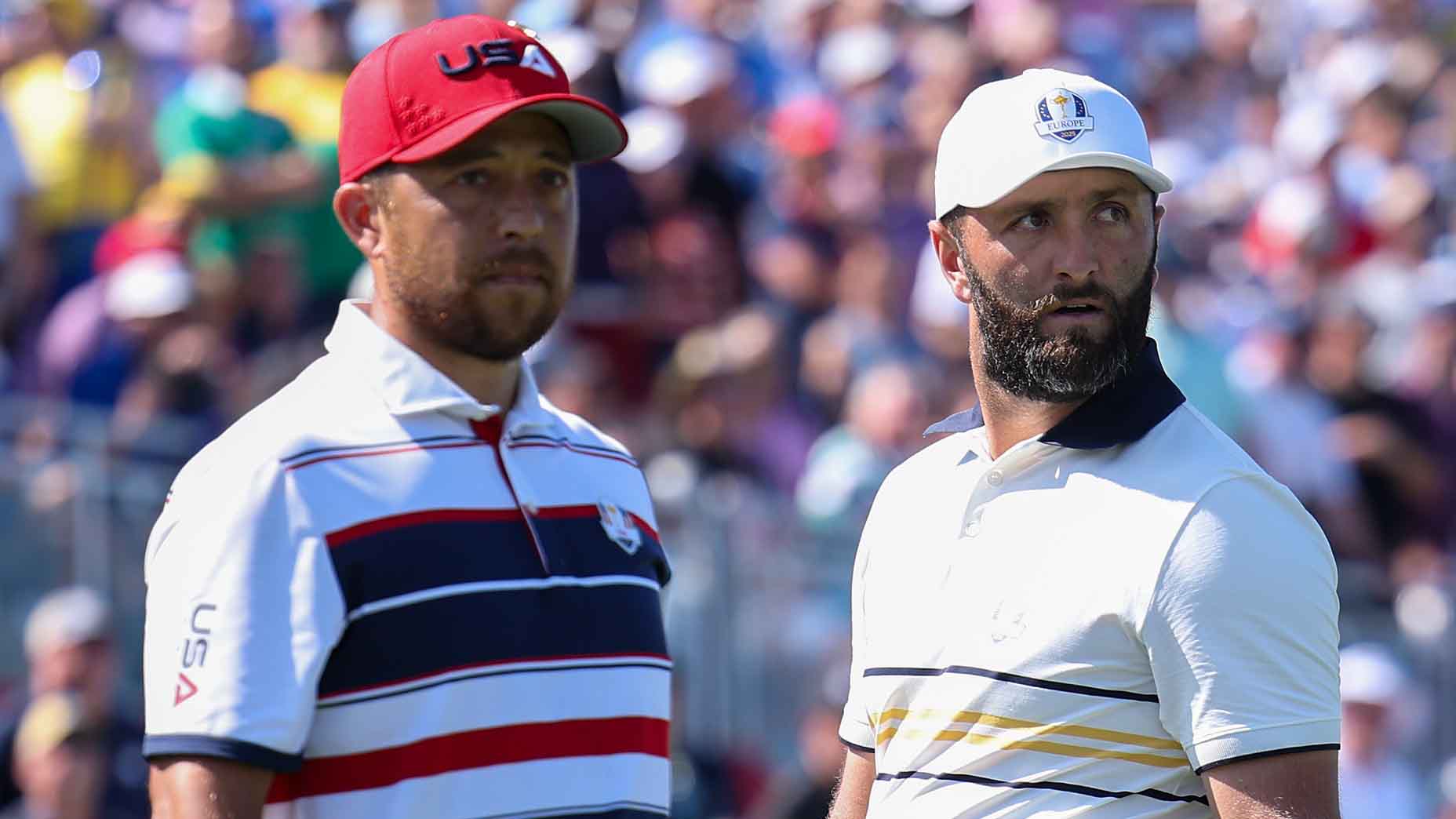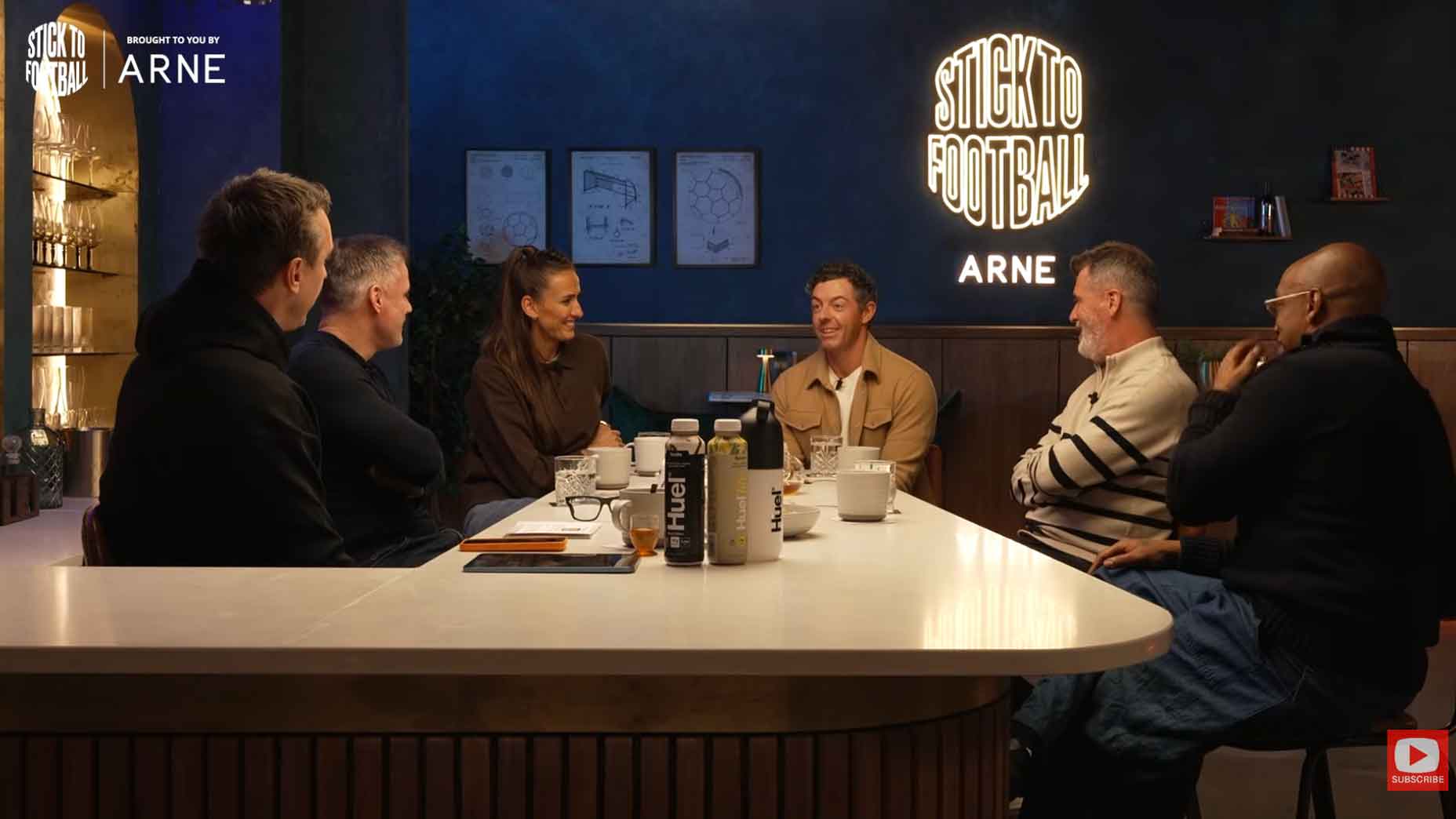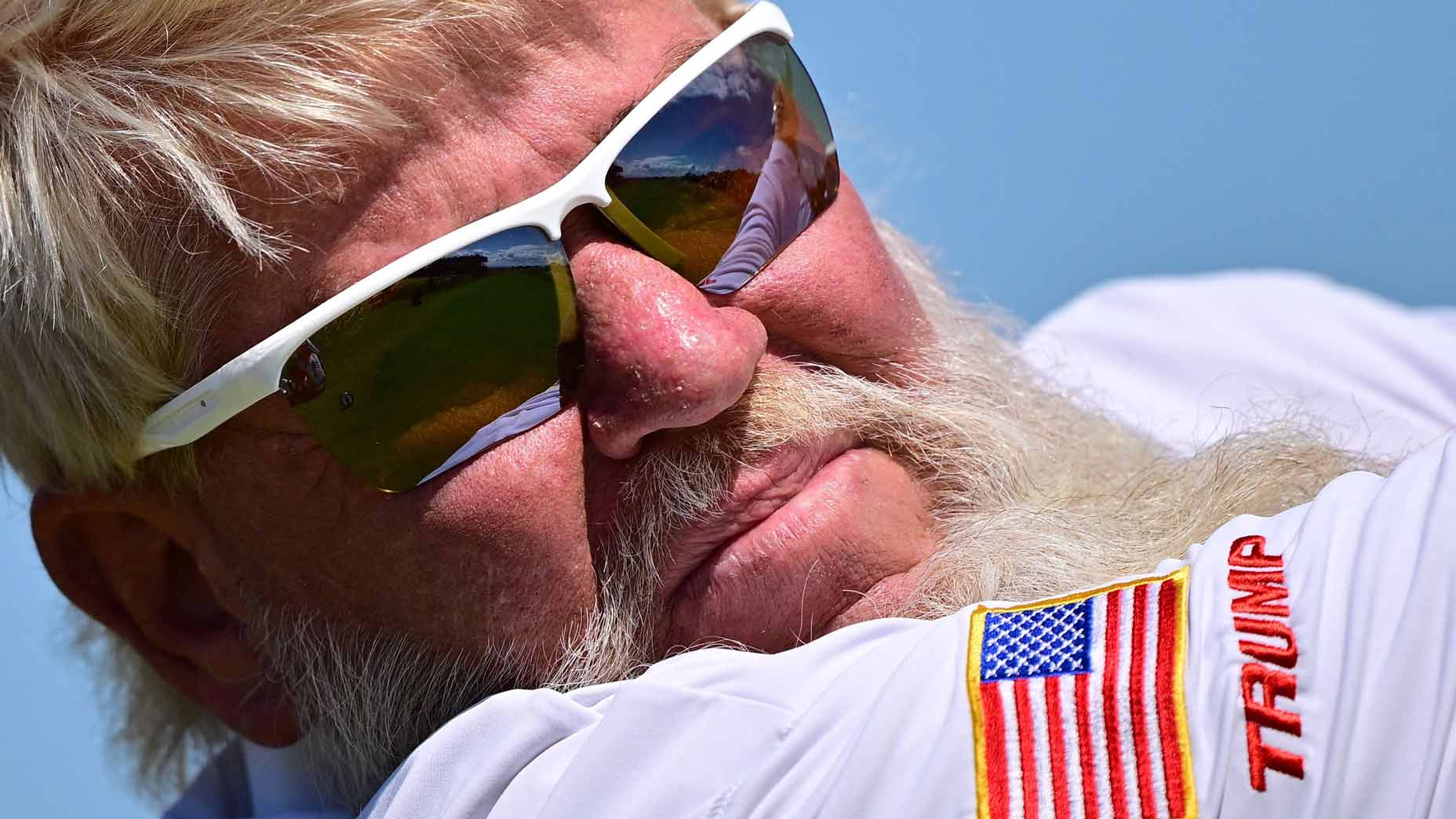After his Ryder Cup team had absorbed a historic first-day beating, U.S. captain Zach Johnson was left with the unenviable, some might say impossible, task of explaining what went wrong. When asked in particular whether he made any on-the-fly tweaks to his afternoon four-ball pairings after the U.S. was shutout in the morning foursomes session, Johnson gave a curious answer.
“Well, we have contingencies and things of that nature based on a lot of things,” he said. “I would say that we’d love to have everything drawn out way, way ahead of time, but there’s certain things you cannot control, and we are trying to control the controllables in our team room, and I’ll leave it at that.”
“So you don’t want to answer?” a reporter said.
“No, not particularly,” Johnson said. “The bottom line is there’s been some unforeseen things that we’ve had to navigate around, which is really unfortunate, in the sense of health. It’s not an excuse, because we have depth, but I’ll just say, I’m grateful we have a team doctor.”
Curious again. First off, why wouldn’t the U.S. Ryder Cup team have a doctor? And second, what happened? The golf press, for one, wanted to know.
“I’m sorry, the health thing,” a reporter followed up. “Can you delve into it a little deeper and give us a better understanding?”
“We’re just fighting things, I mean, internally,” Johnson said. “It’s kind of passed around a little bit, caddies, players. It is what it is. But it’s nothing more than that. Guys are fighting and playing regardless. I mean, it’s not anything that’s kind of weighed us down because of the depth we have and because of the many options we think we have.”
Here’s the thing with injuries and illnesses afflicting professional athletes: unless the athletes or their coaches are willing to divulge, with some level of detail, what those injuries or illnesses are, it’s often best not to mention them at all. That’s because merely hinting at or vaguely addressing said maladies can lead to speculation, rumor or, perhaps worst of all, allegations of excuse-making. It most certainly will lead to more questions from reporters, which came later in Johnson’s press conference.
In Ryder Cup Friday disaster, the U.S. learned something concerningBy: James Colgan
“Going to take a bit of a punt here, but is it like a head cold thing?” a writer said. “I noticed quite a few of your players have been sniffling a lot in their press conferences this week.”
“Yes, we have got some congestion and some just signs of things that are unfortunate,” Johnson said. “It’s one of those where sometimes the energy is probably a little low, but the ability and desire to go out and play is still there. That’s what we are weighing. Every one of them still wants to play every match, which is encouraging.
Reporter: “Is it spreading?”
“It kind of has, yeah, I’m being honest, yes, it has,” Johnson continued. “It has spread through my team.”
Whether his players’ condition had an impact on their play is hard to say, but Johnson, wisely, wasn’t about to use the bug as a cop-out when a reporter asked, “None of the players who went out said they weren’t feeling a hundred percent?”
“No, they were all hungry and ready,” Johnson said. “Still are.”
They had best be. There are 20 points still on the table at Marco Simone. To retain the title, the U.S. will need to win 12.5 of them.










